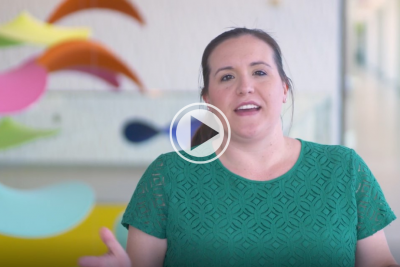 Doctors are not always the greatest communicators. This probably doesn’t come as a shock. In fact, many of you can probably think of times when physicians have fumbled through difficult conversations with you. As an occasionally fumbling physician, I have certainly made plenty of mistakes. And the busier the day, the worse it gets.
Doctors are not always the greatest communicators. This probably doesn’t come as a shock. In fact, many of you can probably think of times when physicians have fumbled through difficult conversations with you. As an occasionally fumbling physician, I have certainly made plenty of mistakes. And the busier the day, the worse it gets.
A recent study in Pediatrics showed another side of this problem. Researchers from the University of Amsterdam followed 27 pediatricians and 37 parents as they discussed end-of-life decision-making for their children. During these critical conversations, physicians spoke 67% of the time, while parents spoke only 30% of the time. At the end of the study, these parents told researchers that they wanted more involvement in discussions and decision-making.
While poor communication by physicians may not be surprising, it can be a big problem for parents. To make the best medical decisions for your child, you need to understand what is going on and have your voice heard. As parents, the best way to slow your doctor down and advocate for your child is by asking questions. Here are four things to think about the next time your child is sick:
- Ask questions: This is simple advice, but many parents seem to hold back. When my mother was critically ill, I remember standing by my father as the physician rapidly explained her condition. My dad nodded his head in agreement throughout the conversation. After the doctor walked away, he turned to me and asked “What the heck did she just say?” It is the doctor’s job to explain things in a way that makes sense to patients and families. If you don’t understand what is going on, then my job is not done. Medicine is difficult, and illness is scary. You should never feel nervous or ashamed about asking questions, even if you have to ask the same question over and over again. Keep asking until it makes sense.
- Make a list: It is an unfortunate reality that doctors cannot spend a lot of time with each individual patient. The moments that we do spend together can be great times to get your questions answered. However, sleepless nights with a sick toddler do not lend to a healthy memory, and parents often forget the vital questions that had been nagging them for days. On a daily basis, I have parents who are frustrated with themselves because they forgot the one question they really wanted to ask. If your child is sick, keep a pad of paper near you and jot down the questions as they come to you. This is a great way to ensure that you won’t forget to ask.
- Ask for a picture: Many of us are visual learners, and a simple diagram can often be more helpful than a complicated description. The other day, I was trying to explain to a family a complex biosynthetic pathway that was not working in their child. Halfway through the explanation, even I was losing track of what I was saying. As the family stared at me blankly, I grabbed a paper towel from the sink and drew a simple picture to explain the major concepts. Only then did it start to make sense. A basic picture or diagram can go a long way toward simplifying a complex process. You should feel free to ask for a picture, however unartistic, to help you understand.
- Force us to use simple terms: It is estimated that medical students have to double their vocabulary in order to finish medical school. After a while, this new language becomes part of our everyday lives and doctors can find it hard to break free from jargon. Don’t feel embarrassed if you don’t know what some words mean. We had to go to school for a very long time to sound so confusing… As a parent, you should stop us every time we use terms that you don’t recognize. It will help you to understand what we are saying, and it will train us doctors to speak in plain English.





This was a really insightful article. It’s good to be reminded that doctors are human beings, too! I know I’ve been confused a time or two about what they’ve told me, but I’ll feel better know about asking them to explain in simpler terms! Thanks for sharing this.